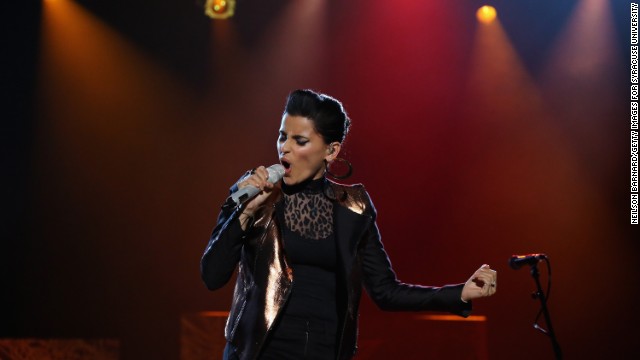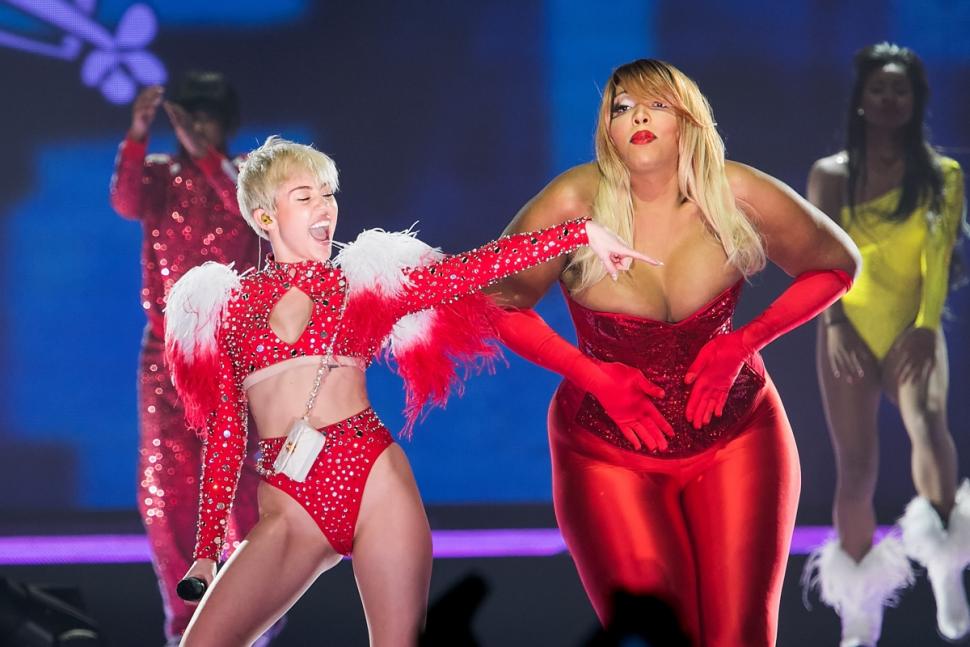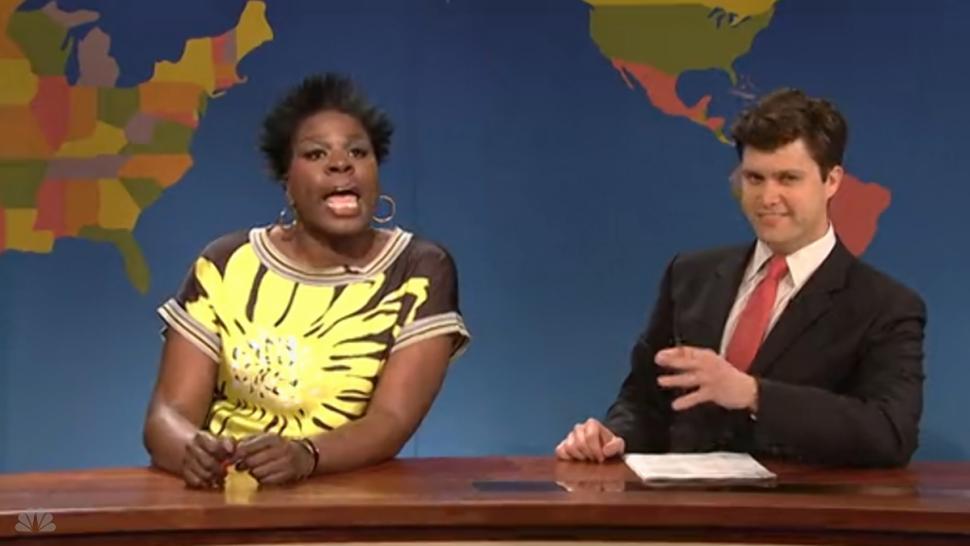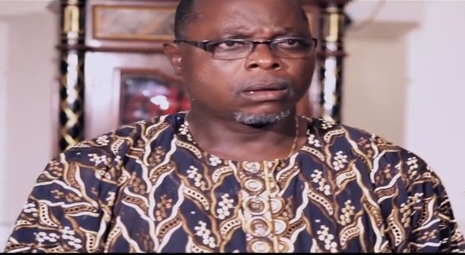When celebrity meets brutality
- Dennis Rodman defends playing in North Korea as “basketball diplomacy”
- “It’s a pay day, I’m sure that’s the bottom line,” NBA columnist Peter Vecsey says
- The New York Philharmonic made a successful cultural visit to North Korea in 2008
- A-list entertainers have earned big paychecks singing for repressive regimes
Los Angeles (CNN) — Dennis Rodman’s “Big Bang in Pyongyang” may be in a league of its own, but other celebs have performed for audiences associated with repressive governments, too.
Unlike Rodman, most have proclaimed ignorance and apologized, with some even donating their profits to charity after public outrage erupted.
“I don’t give a rat’s ass what the hell you think,” was Rodman’s angry response Tuesday when Chris Coumo of CNN’s “New Day” questioned the trip to North Korea.
The former NBA star and reality TV star is giving a special birthday gift to North Korean leader Kim Jong Un: a basketball game Wednesday with former NBA players versus the North Korean Senior National Team. North Korea’s “supreme leader,” a big basketball fan, is believed to be turning 31.
U.S. Rep. Eliot Engel
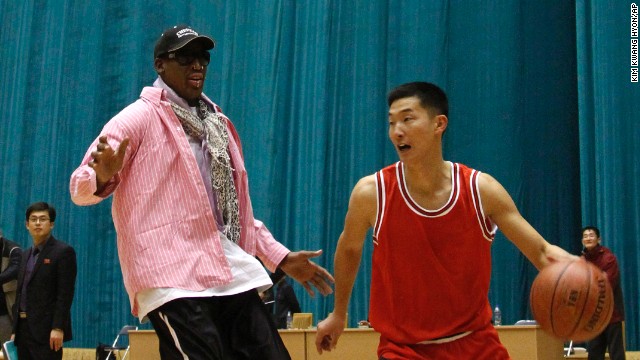 Former basketball star Dennis Rodman plays one-on-one with a North Korean player during a practice session in Pyongyang, North Korea, on December 20, 2013. Rodman and several other former NBA players have arrived in North Korea to take part in a basketball game on Wednesday, January 8, the birthday of North Korean leader Kim Jong Un.
Former basketball star Dennis Rodman plays one-on-one with a North Korean player during a practice session in Pyongyang, North Korea, on December 20, 2013. Rodman and several other former NBA players have arrived in North Korea to take part in a basketball game on Wednesday, January 8, the birthday of North Korean leader Kim Jong Un.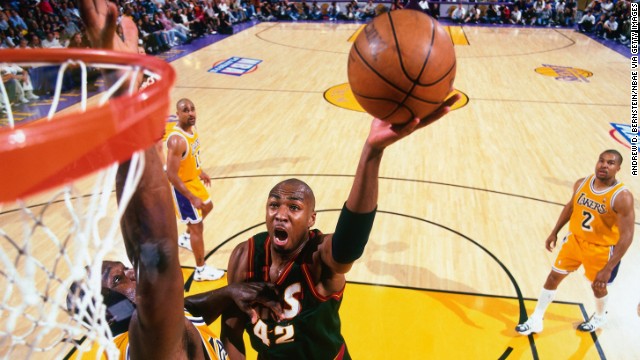 Vin Baker shoots the basketball during a 1998 playoff game in Los Angeles. Baker is one of seven former NBA players taking part in the game in North Korea, according to Rodman’s agent, Darren Prince. Baker was a four-time NBA All-Star who averaged 15 points a game during a 13-year career that ended in 2006.
Vin Baker shoots the basketball during a 1998 playoff game in Los Angeles. Baker is one of seven former NBA players taking part in the game in North Korea, according to Rodman’s agent, Darren Prince. Baker was a four-time NBA All-Star who averaged 15 points a game during a 13-year career that ended in 2006.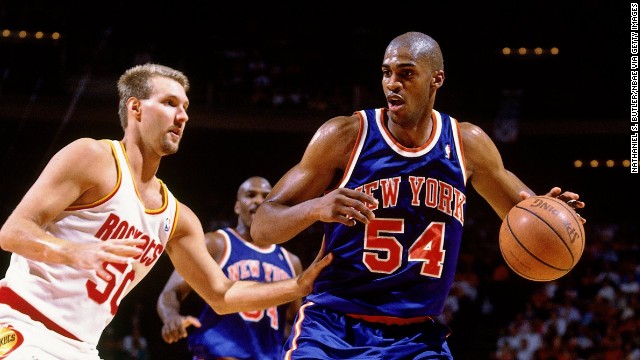 Power forward Charles Smith, dribbling the ball in this photo, played nine NBA seasons after being drafted third overall by the Los Angeles Clippers in 1988. He averaged 14.4 points and 5.8 rebounds during his career.
Power forward Charles Smith, dribbling the ball in this photo, played nine NBA seasons after being drafted third overall by the Los Angeles Clippers in 1988. He averaged 14.4 points and 5.8 rebounds during his career.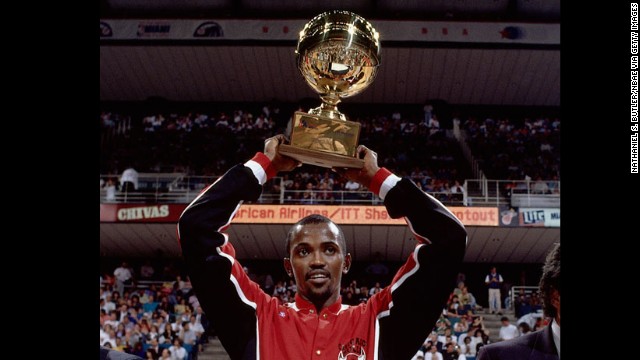 Craig Hodges played in the NBA for 10 seasons and is most known for winning the league’s Three-Point Shootout competition in 1990, 1991 and 1992.
Craig Hodges played in the NBA for 10 seasons and is most known for winning the league’s Three-Point Shootout competition in 1990, 1991 and 1992. Point guard Kenny Anderson was the second overall pick by the New Jersey Nets in 1991, and he would play on seven more teams before his 15-year career ended in 2005. Anderson, a former All-American at Georgia Tech, averaged 12.6 points and 6.1 assists during his NBA career.
Point guard Kenny Anderson was the second overall pick by the New Jersey Nets in 1991, and he would play on seven more teams before his 15-year career ended in 2005. Anderson, a former All-American at Georgia Tech, averaged 12.6 points and 6.1 assists during his NBA career.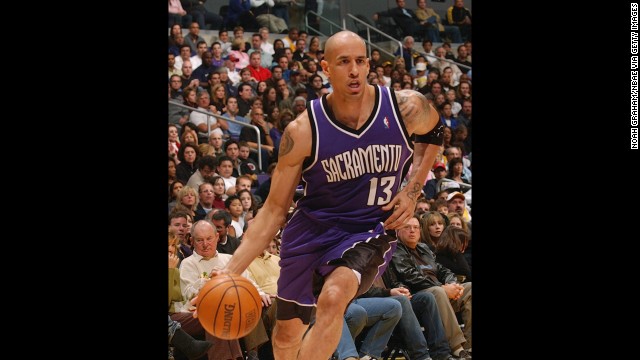 Shooting guard Doug Christie played in the NBA for 15 seasons before retiring in 2007. He averaged 11.2 points per game during his career, and he made the NBA’s All-Defensive Team on four occasions.
Shooting guard Doug Christie played in the NBA for 15 seasons before retiring in 2007. He averaged 11.2 points per game during his career, and he made the NBA’s All-Defensive Team on four occasions.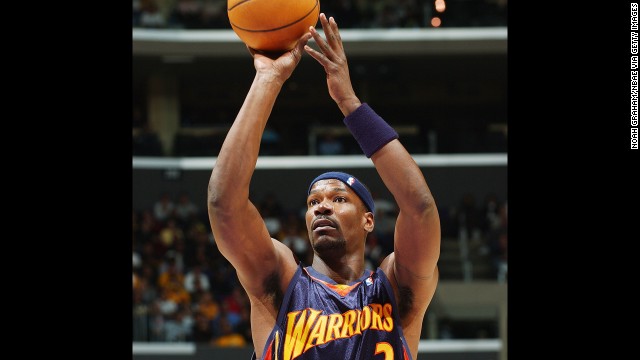 Clifford Robinson scored nearly 20,000 points during an NBA career that spanned 18 seasons. Robinson was the NBA’s Sixth Man of the Year in 1993, when he played with the Portland Trail Blazers.
Clifford Robinson scored nearly 20,000 points during an NBA career that spanned 18 seasons. Robinson was the NBA’s Sixth Man of the Year in 1993, when he played with the Portland Trail Blazers.  Photos: Former NBA stars in North Korea
Photos: Former NBA stars in North Korea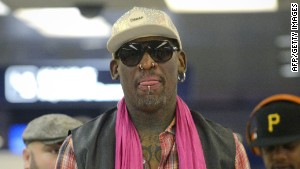 Rodman’s North Korea basketball party
Rodman’s North Korea basketball party
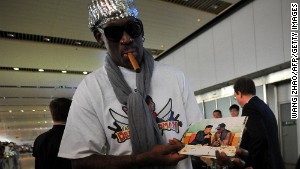 How real is Rodman’s b-ball diplomacy?
How real is Rodman’s b-ball diplomacy?
A U.S. congressman calls it “bizarre and grotesque” and, with North Korea’s repressive regime in mind, compares it to “inviting Adolf Hitler to lunch.”
Rodman defends the game as “basketball diplomacy,” similar to when American ping-pong players traveled to Communist China in 1971, a year before President Richard Nixon’s groundbreaking visit.
Artist as activists
Celebrities often campaign against human right abuses, rather than accepting money to play for a despot.
Hollywood actors contributed their time and money to the U.S. civil rights movement, the campaign against apartheid in South Africa and, more recently, the genocide in Darfur.
Steven Van Zandt led a coalition of musicians in the 1980s against the South African regime, recording the song “Sun City” to raise money for anti-apartheid projects. The array of more than 50 artists joining on the project ranged from Bob Dylan to Bonnie Raitt to Miles Davis.
George Clooney revealed last year that he uses the millions he’s paid for Nespresso coffee commercials to pay for a satellite to keep an eye on the government of Sudanese President Omar al-Bashir.
‘Hanoi Jane’s’ regrets
Their deeds become part of their brand, but sometimes what activist artists perceive as noble efforts haunts them for decades.
Academy Award winning actress Jane Fonda has spent the last 40 years living down the infamous photograph of her sitting on a North Vietnamese antiaircraft gun during her 1972 visit to Hanoi — when the United States was still at war with that country.
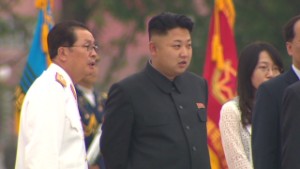 Kim Jong Un praises uncle’s execution
Kim Jong Un praises uncle’s execution
Fonda has blamed being exhausted near the end of her trip and possibly being set up by her North Vietnamese host when they took her to meet with soldiers.
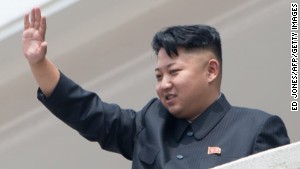 Kim: U.S., South Korea ‘war maniacs’
Kim: U.S., South Korea ‘war maniacs’
But the photo was not the only aspect of her trip that caused longstanding outrage. Fonda also took part in radio interviews in which she sharply criticized U.S. political and military leaders.
She told Oprah Winfrey last year that it was “an unforgivable mistake.”
Celebrity spy
American singer-dancer Josephine Baker’s decision to remain and perform in France after Germany occupied the country in World War II had a secret motive, history later revealed.
Baker had been recruited by the French underground intelligence service to stay in Paris and report on German military movements. She used her credentials as an entertainer to travel freely behind enemy lines.
Branded a mercenary
Three decades ago, another group of athletes took money to play in a country that much of the world was trying to isolate for oppression. And they paid a high price in the end.
West Indies cricket players who took large payments to tour South Africa despite an international anti-apartheid sporting boycott were branded as mercenaries. The players were shunned by their sport after the “rebel tours.”
Many of them fell into poverty and were forced to leave their country, according to the CNN World Sport documentary “Branded a Rebel,” which first screened last year.
Singing for dictators
Several A-list entertainers have survived embarrassing encounters with other regimes labeled as repressive by pleading ignorance and then apologizing.
The WikiLeaks website published secret diplomatic cables in February 2011 revealing that Beyoncé, Usher and Mariah Carey performed a private concert funded by the family of now-deposed Libyan dictator Moammar Gadhafi.
After the revelation, Beyoncé said she would donate the $1 million she was paid for the New Year’s Eve party on the Caribbean island of St. Barts to charity. Usher and Carey followed suit.
Nelly Furtado, who earned $1 million for another Gadhafi-funded concert, also donated her paycheck after it became public.
When video was posted online in June showing Jennifer Lopez singing “Happy Birthday, Mr. President” to a leader who has been characterized as one of the most repressive in the world, she pleaded ignorance.
“We wish you the very, very, happiest birthday,” Lopez said to Turkmenistan President Gurbanguly Berdymukhamedov, and then she sang to him at a huge celebration at a resort in the central Asian country.
The singer’s spokesman told CNN that “had there been knowledge of human right issues of any kind, Jennifer would not have attended.”
Human Rights Watch, in a report to the U.N. Human Rights Committee, called Turkmenistan “a country marked by extraordinary levels of repression.”
The singer’s spokesman, Mark Young, said she was invited to perform at a private corporate event for the China National Petroleum Corporation in Turkmenistan, an event not sponsored by the government. The birthday song was a last-minute request, he said.
Lopez told Cosmopolitan magazine two months later that she could admit making a mistake.
“I know that being seen as a role model means taking responsibility for all my actions. I am human, and of course, sometimes I make mistakes,” she said. “But I promise that when I fall, I get back up. When I am wrong, I will learn the lesson and move on to face other challenges.”
Rodman: Kim an ‘awesome guy to me’
Former U.S. Ambassador to the United Nations Bill Richardson told CNN’s Wolf Blitzer Tuesday that he was “disappointed” with Rodman’s basketball trip because it was “being used propaganda-wise by the regime.”
“I think Dennis has drank a little too much of the Kool-Aid from the North Koreans,” said Richardson, who has traveled to the country several times.
On Monday, before boarding a flight in China for North Korea, Rodman told CNN, “I’m going to try and interact with him (Kim) on that point of love for sports … He loves sports. I like the guy, and he’s an awesome guy to me.”
Rodman’s “awesome guy” is credited with having his own uncle executed last month.
Human RIghts Watch estimates that more than 200,000 North Koreans, including children, are imprisoned in Kim’s camps, “where many perish from forced labor, inadequate food and abuse by guards.”
More than 25% of North Korean children under the age of 5 suffered from chronic malnutrition in 2012, according to the National Nutrition Survey of North Korea, a report backed by UNICEF, the World Food Program and the World Health Organization. The report also found nearly one in three women suffered from anemia.
The United States has nearly 30,000 troops in South Korea to guard against aggression from the North six decades after a cease-fire ended hostilities on the Korean Peninsula.
North Korea is also holding U.S. citizen Kenneth Bae prisoner for more than a year for reasons that are not clear.
Rodman suggested in a CNN interview Tuesday that the Korean-American had done something wrong but did not say what that was.
White House spokesman Jay Carney said Tuesday that he would not “dignify that outburst with a response.” Rodman is making the trip as a private citizen and the U.S. government has no control, Carney said.
Rodman “crossed the line” by implying Bae might be guilty of a crime that justified his detention, Richardson said.
Rodman insisted Monday that it’s not his job to be concerned about Kim’s repressive state.
“One thing is about showing people we can actually get along,” he said. “Let’s get along as human beings, not politicians.”
Rep. Eliot Engel, a New York Democrat, held a news conference Monday to call on Rodman to call off the game.
With a mother and daughter who escaped North Korea standing next to him, Engel called it “very ill-conceived,” according to Time.com.
“I don’t think we should ignore the real suffering in this gulag state,” Engel said. “And Dennis Rodman wants to go there and play basketball. It would be like inviting Adolf Hitler to lunch.”
Georgetown University Professor Victor Cha, a former director for Asian affairs at the White House, told CNN Tuesday Rodman’s trips could be helpful to experts and analysts who study Kim.
“In spite of all the criticism of Dennis Rodman, every time he meets with the North Korean leader, that’s more information that we know about him because we know so little about him,” Cha said. “The footage of his first trip to North Korea is probably the only live footage we have of the North Korea leader socializing outside of a staged propaganda event. In that sense, I think what he does can be helpful to those of us who are interested in learning more about this mysterious leadership and where it’s headed.”
Given the unpredictability of the Kim regime, it’s possible North Korea could decide to release Bae as a favor to Rodman. Cha said.
“It’s entirely possible that he (Kim) could do something like that, and if he did all of us would stop criticizing Dennis Rodman,” he said.
Bottom line: ‘It’s a pay day’
NBA columnist Peter Vecsey speculated in a CNN interview Monday that Rodman and the other players — including Kenny Anderson, Cliff Robinson, Vin Baker, Craig Hodges, Doug Christie and Charles D. Smith — have money, and not world peace, in mind.
“It’s a pay day, I’m sure that’s the bottom line,” said Vecsey. “I don’t think they’re going just to see the 38th Parallel.” The 38th Parallel is the border between North and South and the demilitarized zone where U.S. forces are focused.
The former players need the money, Vecsey said. “I know for sure some of them do. They haven’t had many pay days.”
The Irish online gambling company Paddy Power, which was sponsoring the game, withdrew its name from the official sponsorship in recent weeks because of the negative publicity.
But its website still reads: “Paddy Power Dennis Rodman Invitational, an international basketball event taking place in the North Korean capital Pyongyang in January 2014, with the official support and backing of the DPRK government and pint-sized leader, Kim Jong-Un.”
The company is still committed to funding it under a contract, Vecsey said.
This is Rodman’s fourth trip to North Korea in the past year. The first was to film a documentary that aired last summer on HBO titled “Basketball Diplomacy.”
The website Vice.com said the goal was to “thaw out relations through some hoops diplomacy.”
“U.S. relations with North Korea have been strained to the breaking point by the country’s disturbing nuclear-weapons threats, backed by ‘supreme leader’ Kim Jong Un’s anti-American rhetoric,” it said. “Fortunately, Kim shares one of his late father’s passions: American basketball.”
Can cultural trips help diplomacy?
When relations were relatively warmer between the United States and North Korea — in the midst of progress on nuclear disarmament negotiations six years ago — there was a successful cultural visit by the New York Philharmonic.
The orchestra performed a landmark concert in Pyongyang that was televised by North Korea state television in February 2008.
North Korea’s chief nuclear negotiator, Vice Foreign Minister Kim Kye Gwan, told CNN’s Christiane Amanpour at the time that the orchestra’s visit “has been very successful art-diplomacy between the two nations.” It “contributed to good understanding between our two nations. Actually improving relations is not all in the hands of governments,” he said.
But that was before Kim’s father, Kim Jong Il, died and left his son in charge.
![]()
Source: CNN

 In June, Jennifer Lopez sang “Happy Birthday” to Turkmanistan President Gurbanguly Berdimuhamedow, whose regime was described as “one of the world’s most repressive” in a January 2013 report by Human Rights Watch. Lopez is believed to be the first major Western star to visit the isolated former Soviet republic, and her performance caused a backlash.
In June, Jennifer Lopez sang “Happy Birthday” to Turkmanistan President Gurbanguly Berdimuhamedow, whose regime was described as “one of the world’s most repressive” in a January 2013 report by Human Rights Watch. Lopez is believed to be the first major Western star to visit the isolated former Soviet republic, and her performance caused a backlash.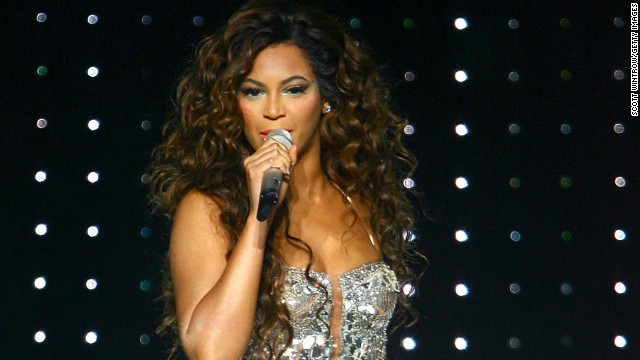 Beyonce, seen here at New York’s Madison Square Garden in 2007,
Beyonce, seen here at New York’s Madison Square Garden in 2007, 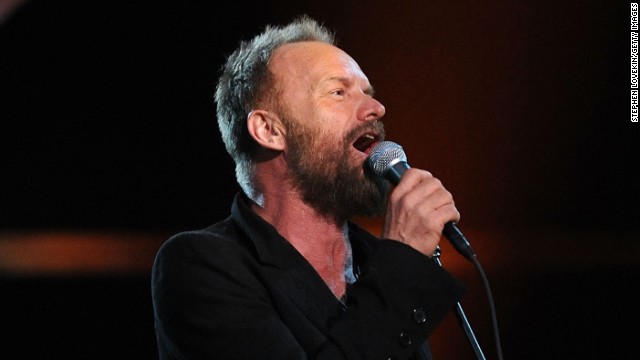
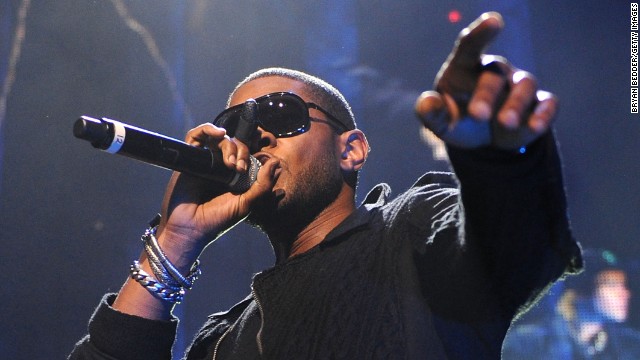
 Mariah Carey had also performed for the Gadhafi family at a New Year’s Eve party, but in 2008. She
Mariah Carey had also performed for the Gadhafi family at a New Year’s Eve party, but in 2008. She 